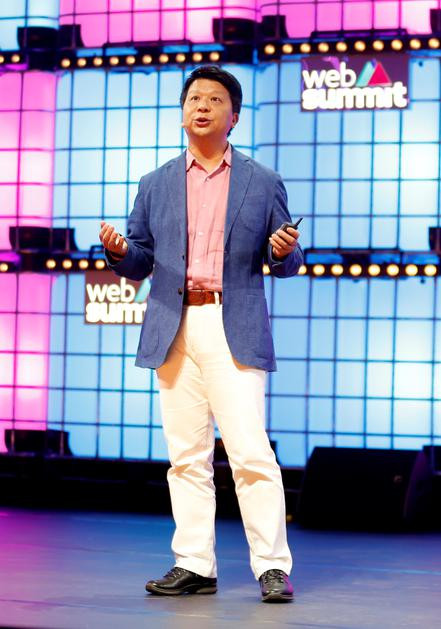Doing something about getting blacklisted by the United States, Chinese telecoms giant Huawei charmed app developers to embrace its own operating system (OS) at Europe's biggest tech gathering in Portugal.
Huawei, after getting denied by the US to buy its chips and technology, announced this week its plans to spend $40 billion on European supplies.
The US accuses Huawei of making products, especially those to do with 5G, as having back-door access for Chinese spies.
Huawei has since denied its connections with Chinese intelligence.
Huawei's presence at the Web Summit in Lisbon, Portugal and developing its own OS are strategies to lessen the Chinese giant's reliance on US supplies and technology as a countermeasure for the ongoing Sino-US trade issues.
At the moment, the company is enjoying a robust share of the next-generation 5G market both in Asia and Europe.
Huawei cannot use Google services on its latest models of phones because of America's sanctions.
However, it is is working on its alternative operating system, Harmony OS, for a range of interconnected devices.
At the summit, current chairman Guo Ping did the keynote address on Monday's opening.
An afternoon-long briefing was then given by Huawei executives to about 300 developers of smartphone apps.
Huawei detailed how it offers in-house expertise and price reductions to developers.
Developers, most of the time, have to pay Google's Android and Apple's iOS a big amount of their profits to sell games and apps.
Fifteen percent is the only commission Huawei will ask from developers from their in-app purchases profits, surprisingly only half of the amount charged by Google and Apple.
Jervis Su, vice president of mobile services at Huawei said that the company wants "to make sure that no developer feels left out" or experience any difficulty once they enter Huawei's developer program.
Guo noted that Huawei is investing $1.5 billion over five years on global training programs in universities and startups.
Likewise, another $1 billion will get spent to inspire web developers to innovate.
At the Lisbon summit, in reference to the firm's own OS, he said that "5G upgrades our communication infrastructure."
Guo also pointed out that AI [artificial intelligence] gives Huawei the most powerful computing engines.
On its smartphones, Huawei has its own App Gallery with close to 50,000 applications.
One of those actively invited into Huawei's App Gallery is Adnan Selimovic, senior software architect at the Austrian company TeleTrader.
Selimovic added that his company got asked to collaborate further with Huawei by adding more functionalities like push notifications and other interactive widgets for mobile trading.
Though TeleTrader has separate development teams for its Android and iOS apps, Huawei's support for its own developers means there's no need to hire and pay for another team.





